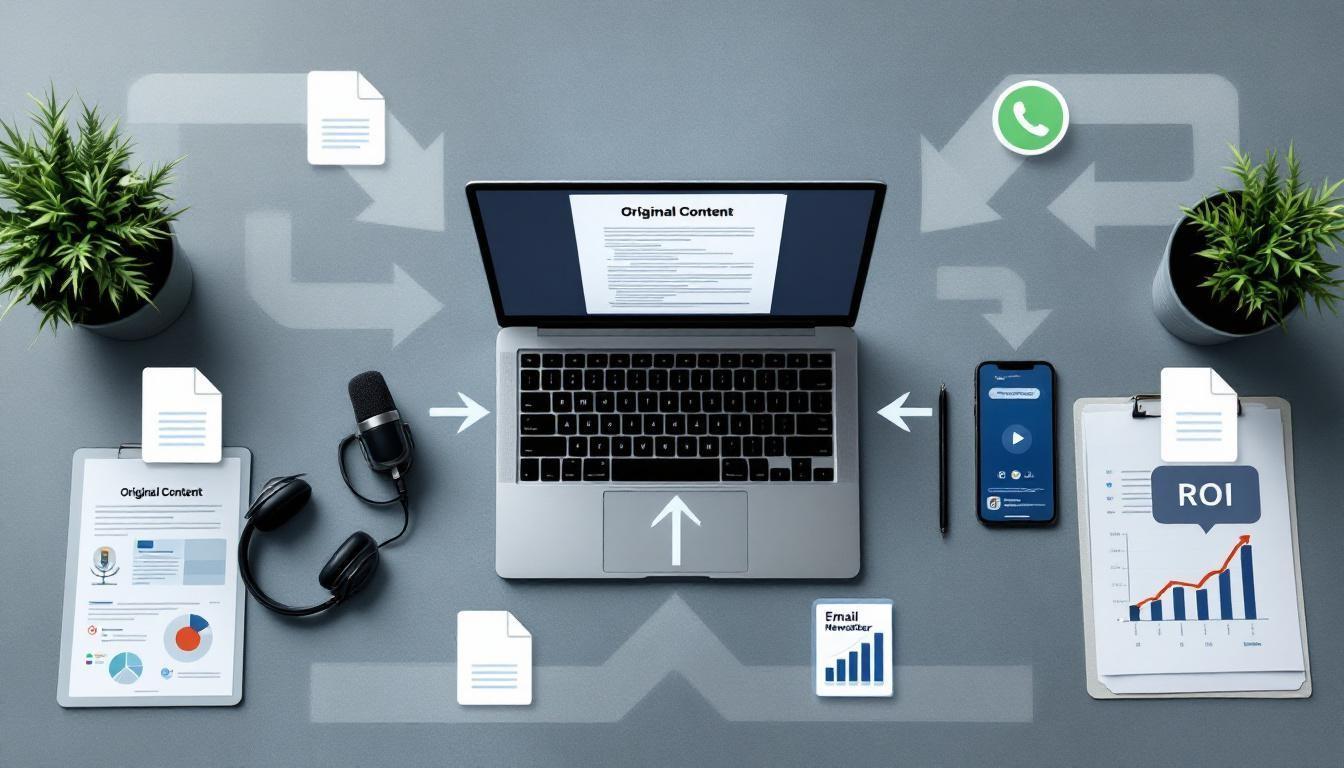
Content marketing is a powerful tool for businesses to attract and engage their target audience. At Cajabra, LLC, we've seen firsthand how effective content marketing solutions can transform a company's online presence and lead generation.
In this post, we'll explore top strategies, distribution channels, and optimization techniques to elevate your content marketing game. Get ready to discover practical tips and tools that will help your business stand out in the digital landscape.
Creating compelling content forms the foundation of successful content marketing. A strategic approach to content creation yields the best results. Here are effective strategies to elevate your content game:
Develop a comprehensive content calendar. This tool maintains consistency and aligns your content with business goals and seasonal trends. HubSpot reports that marketers who proactively plan projects are 356% more likely to report success. Your calendar should outline topics, formats, and publication dates, ensuring a steady flow of relevant content.
User-generated content (UGC) provides authenticity and engagement. According to Stackla, 79% of people say UGC highly impacts their purchasing decisions. Encourage customers to share their experiences with your brand through reviews, social media posts, or testimonials. This provides fresh content and builds trust with potential clients.
Storytelling connects with your audience on an emotional level. Share customer success stories, company milestones, or behind-the-scenes glimpses to humanize your brand and create memorable content.
Data-driven content creation is essential (not optional). Use analytics tools to understand what content resonates with your audience. Google Analytics can provide insights into which topics drive the most traffic and engagement. Tailor your content based on these insights to maximize impact. A study by Aberdeen Group revealed that data-driven organizations are 23 times more likely to acquire customers.
Search Engine Optimization (SEO) remains a critical component of content creation. Try to incorporate relevant keywords naturally into your content. Use tools like SEMrush or Ahrefs to identify high-value keywords in your industry. Remember to optimize meta descriptions, headers, and image alt text to improve your content's visibility in search results.
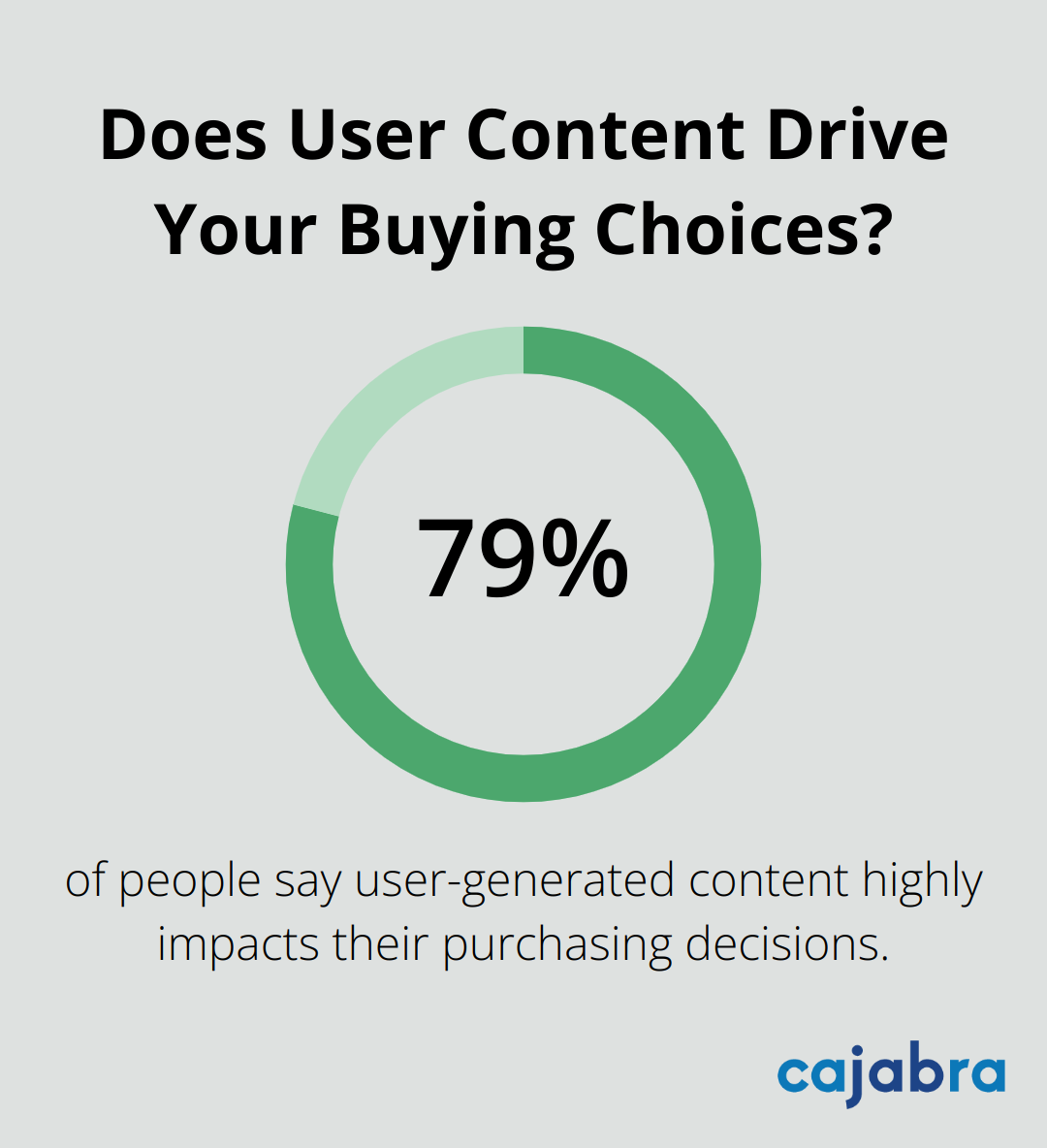
These strategies will help you create content that not only attracts attention but also drives meaningful engagement with your target audience. The next step is to effectively distribute this compelling content across various channels to maximize its reach and impact.
Creating exceptional content is only the first step. The real challenge lies in getting it in front of the right audience. A multi-channel approach often yields the best results for businesses across industries. Here's how you can effectively distribute your content:
Social media platforms serve as powerful distribution channels, but each platform has its unique strengths. For B2B companies, LinkedIn often proves most effective. The Content Marketing Institute reports that 96% of B2B content marketers use LinkedIn for organic content distribution. Post your content regularly, engage with your followers, and use relevant hashtags to increase visibility.
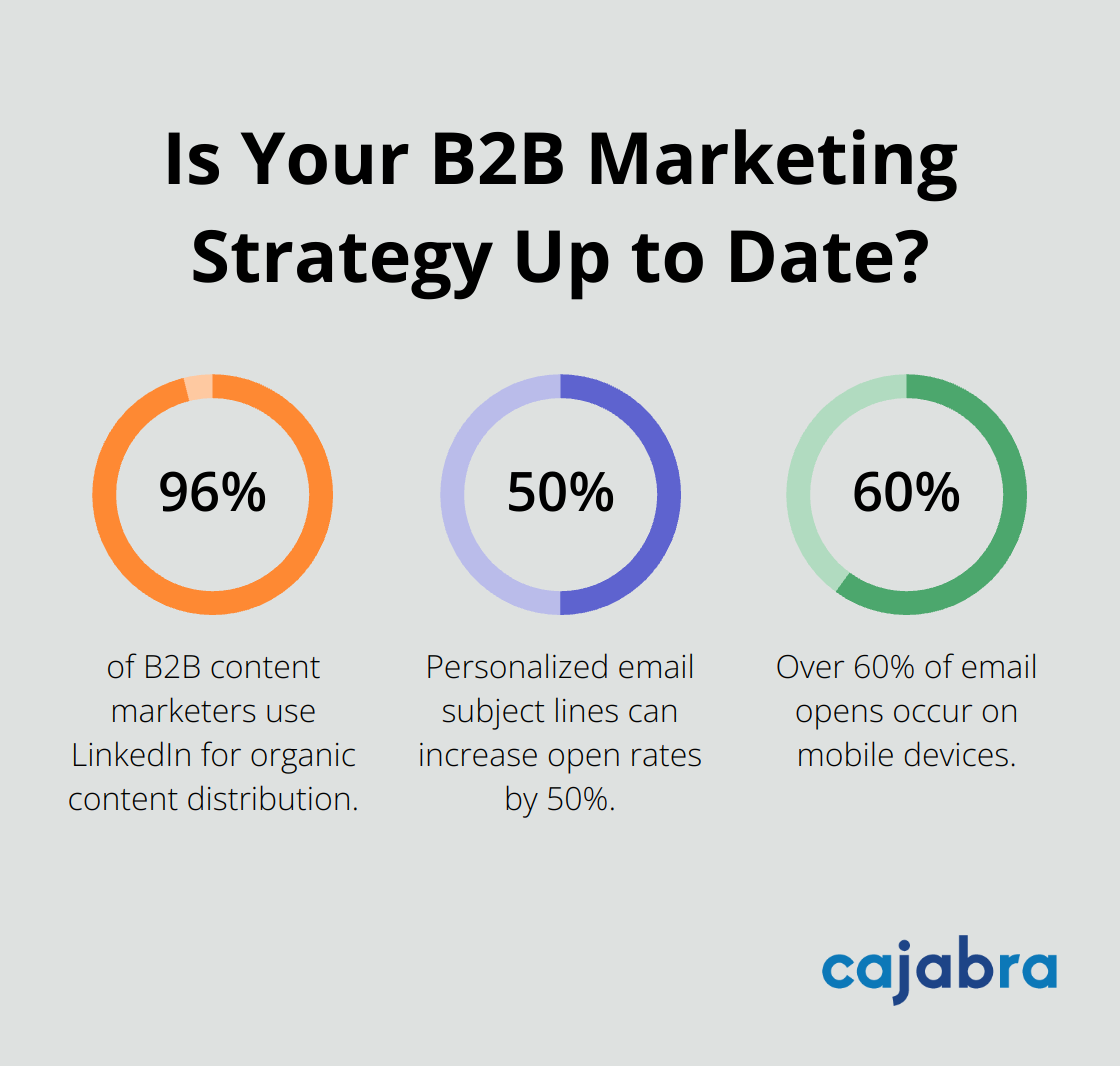
Facebook and Twitter can also provide value, especially for reaching a broader audience. On these platforms, visual content tends to perform better. Create infographics or short video summaries of your longer content pieces to boost engagement.
Email remains one of the most potent content distribution channels. Email marketing statistics for 2023 demonstrate just how powerful email can be. Build a quality email list and segment it based on subscriber interests and behaviors. This allows you to send targeted content that resonates with specific audience segments.
Use compelling subject lines to improve open rates. SuperOffice reports that personalized email subject lines can increase open rates by 50%. Also, optimize your emails for mobile devices, as over 60% of email opens occur on mobile.
Influencer partnerships can significantly expand your content's reach. In the B2B space, this often means collaborating with thought leaders and industry experts. These partnerships can take various forms, from co-created content to guest appearances on podcasts or webinars.
When selecting influencers, focus on those who align with your brand values and have an engaged audience in your target market. Influencer marketing can be compared to traditional marketing methods to evaluate the strengths and weaknesses of each approach.
Guest posting on reputable industry blogs helps you reach new audiences and establish your brand as a thought leader. Start by identifying blogs that your target audience frequents. Pitch unique, valuable content ideas that align with the blog's existing content but offer a fresh perspective.
When guest posting, ensure your content provides genuine value to the host blog's audience. Include a brief author bio with a link back to your website or a specific landing page. This not only drives traffic but also helps with SEO by building quality backlinks.
Consistency plays a key role in content distribution. Share your content regularly across these channels to maintain visibility and engagement with your audience. Monitor the performance of your distribution efforts using analytics tools, and adjust your strategy based on the data.
Now that you've learned about effective content distribution channels, let's explore how to optimize your content for maximum impact and engagement.
Content optimization is essential for successful content marketing. It combines technical and creative strategies to boost visibility, engagement, and effectiveness. Here's how to optimize your content for maximum impact:
Search Engine Optimization (SEO) remains a cornerstone of content optimization. Start with thorough keyword research using tools like SEMrush or Ahrefs. Focus on long-tail keywords with high search volume but low competition. Incorporate these keywords naturally into your content, headers, meta descriptions, and image alt text.
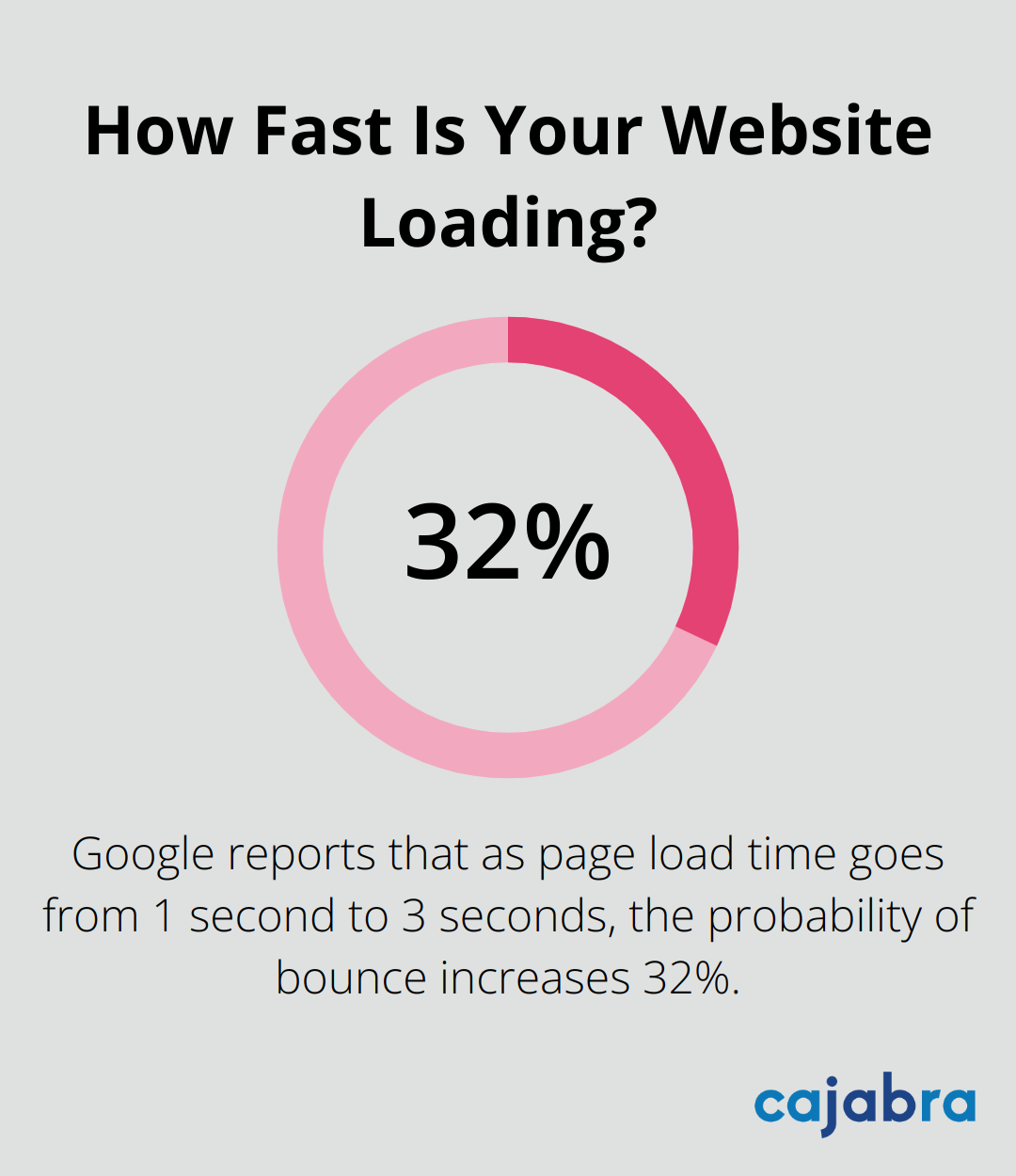
SEO extends beyond keywords. Page load speed affects both user experience and search rankings. Google reports that as page load time goes from 1 second to 3 seconds, the probability of bounce increases 32%. Use Google PageSpeed Insights to identify and fix speed issues on your site.
Mobile devices account for over 50% of global web traffic, making mobile optimization non-negotiable. Ensure your content is easily readable on smaller screens with responsive design. Break up long paragraphs, use subheadings, and incorporate white space to improve readability.
Consider mobile users' unique behaviors. They often consume content on-the-go and prefer shorter formats. Adapt your content strategy by creating bite-sized pieces that deliver value quickly.
Content repurposing maximizes the value of your existing content. Transform a high-performing blog post into an infographic, video, or podcast episode. This approach saves time and resources while catering to different audience preferences.
For example, a detailed guide on tax preparation could become a series of short video tutorials, an interactive checklist, and a downloadable PDF summary. Each format reaches a different audience segment, maximizing the original content's impact.
A/B testing helps optimize your content's performance. Test different headlines, formats, and calls-to-action to see what resonates best with your audience. Even small changes can lead to significant improvements in engagement and conversion rates.
Don't assume you know your audience's preferences – let data guide your decisions.
Regularly analyze your content's performance using tools like Google Analytics. This data-driven approach allows you to identify trends, understand audience behavior, and make informed decisions about your content strategy.
Pay attention to metrics such as page views, time on page, bounce rate, and conversion rates. These insights help you understand which types of content perform best and where improvements are needed.
Content optimization is an ongoing process. Consistently apply these techniques to ensure your content reaches your target audience and drives meaningful results for your business.
Content marketing solutions have become essential for businesses to stand out in the digital landscape. We explored strategies for creating compelling content, effective distribution channels, and optimization techniques to elevate marketing efforts. These approaches help create content that resonates with audiences, expand reach, and build brand authority.
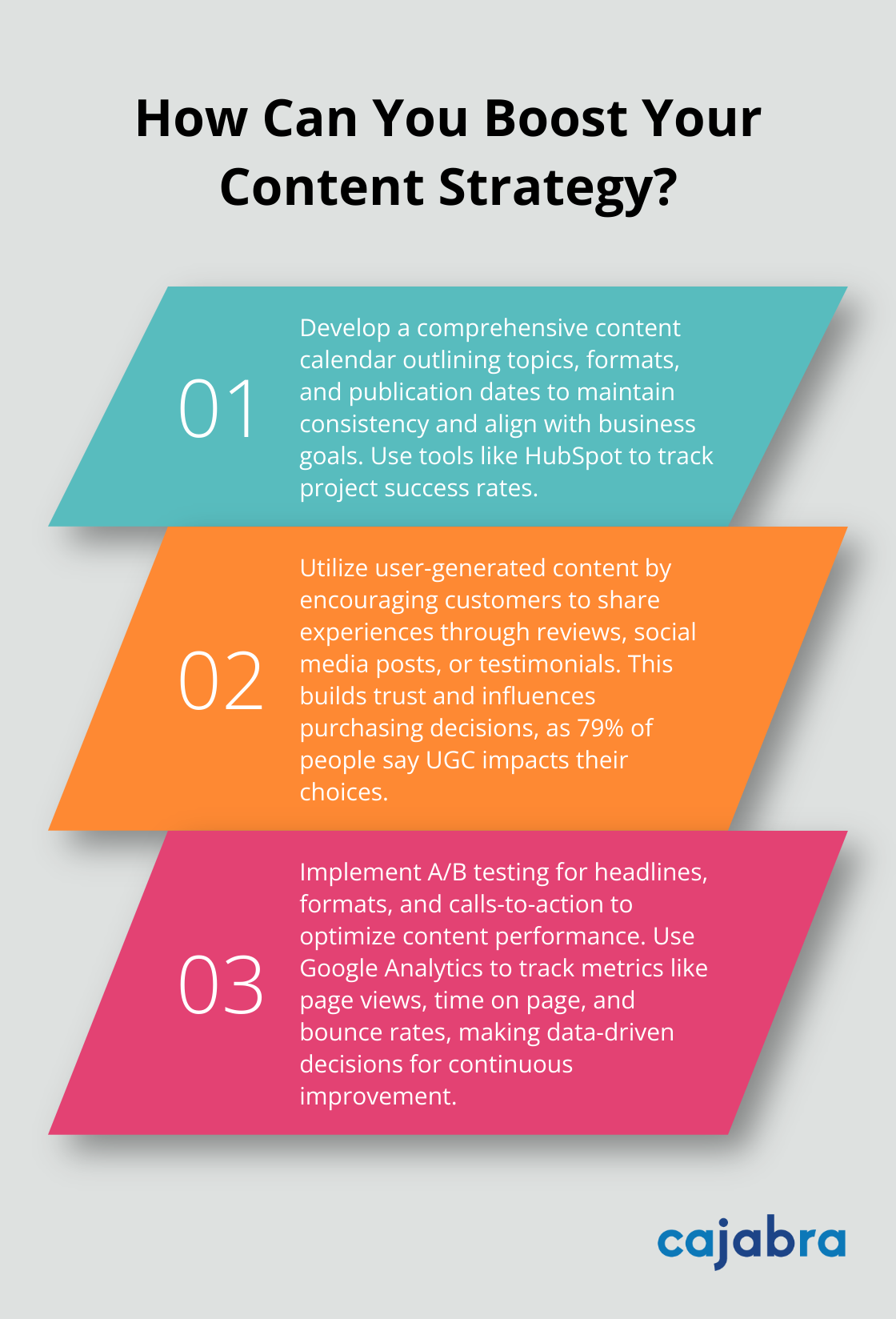
Success in content marketing requires consistent implementation and adaptation to changing trends. Regular analysis of content performance and willingness to innovate are key factors in staying ahead. The digital marketing landscape evolves constantly, demanding flexibility and creativity from marketers.
At Cajabra, we help accounting firms transform their marketing strategies. Our JAB System™ and Premium Online Presence Package aim to move accountants from overlooked to overbooked in 90 days (based on our experience with clients). We offer tailored solutions to help firms attract ideal clients and stand out in the accounting industry.
